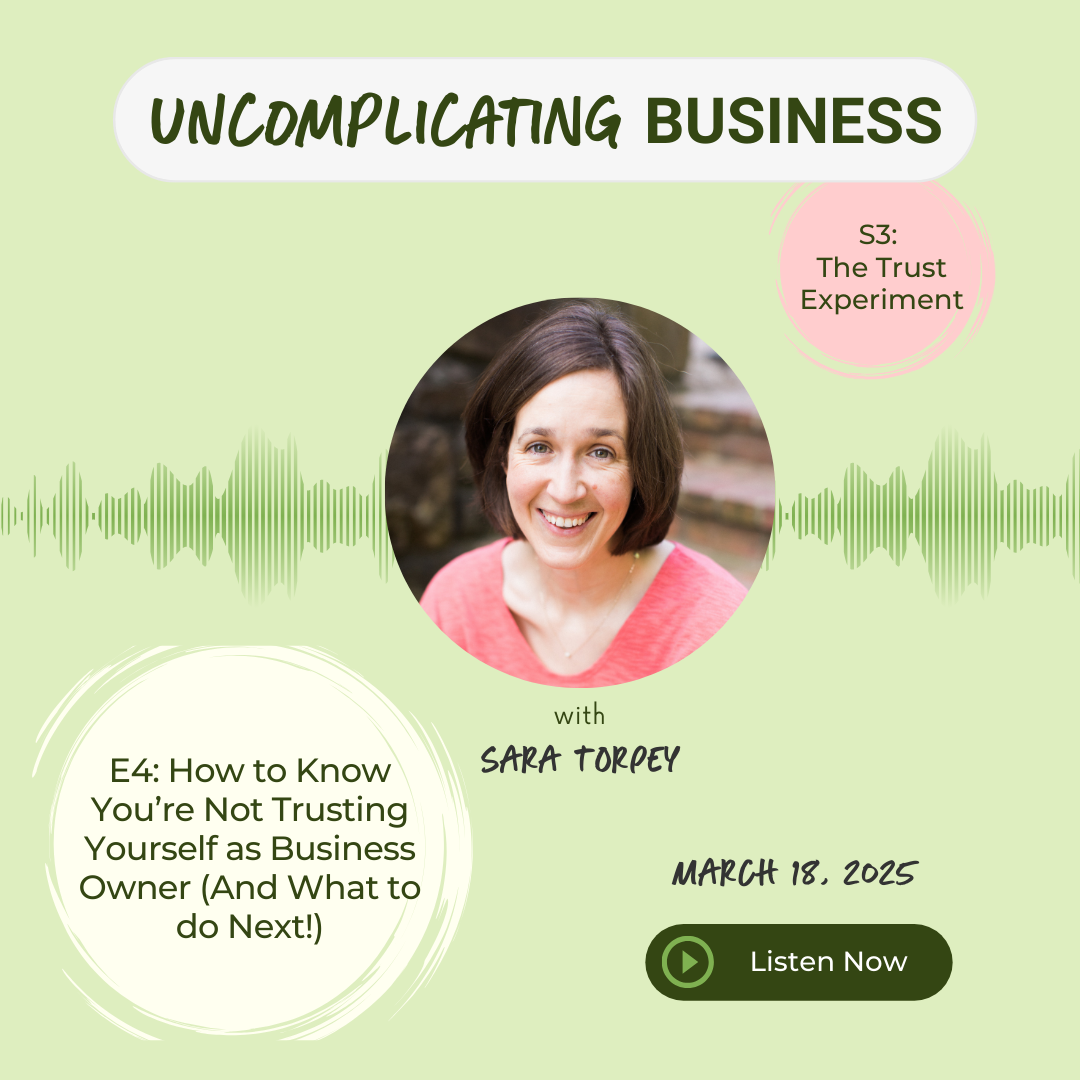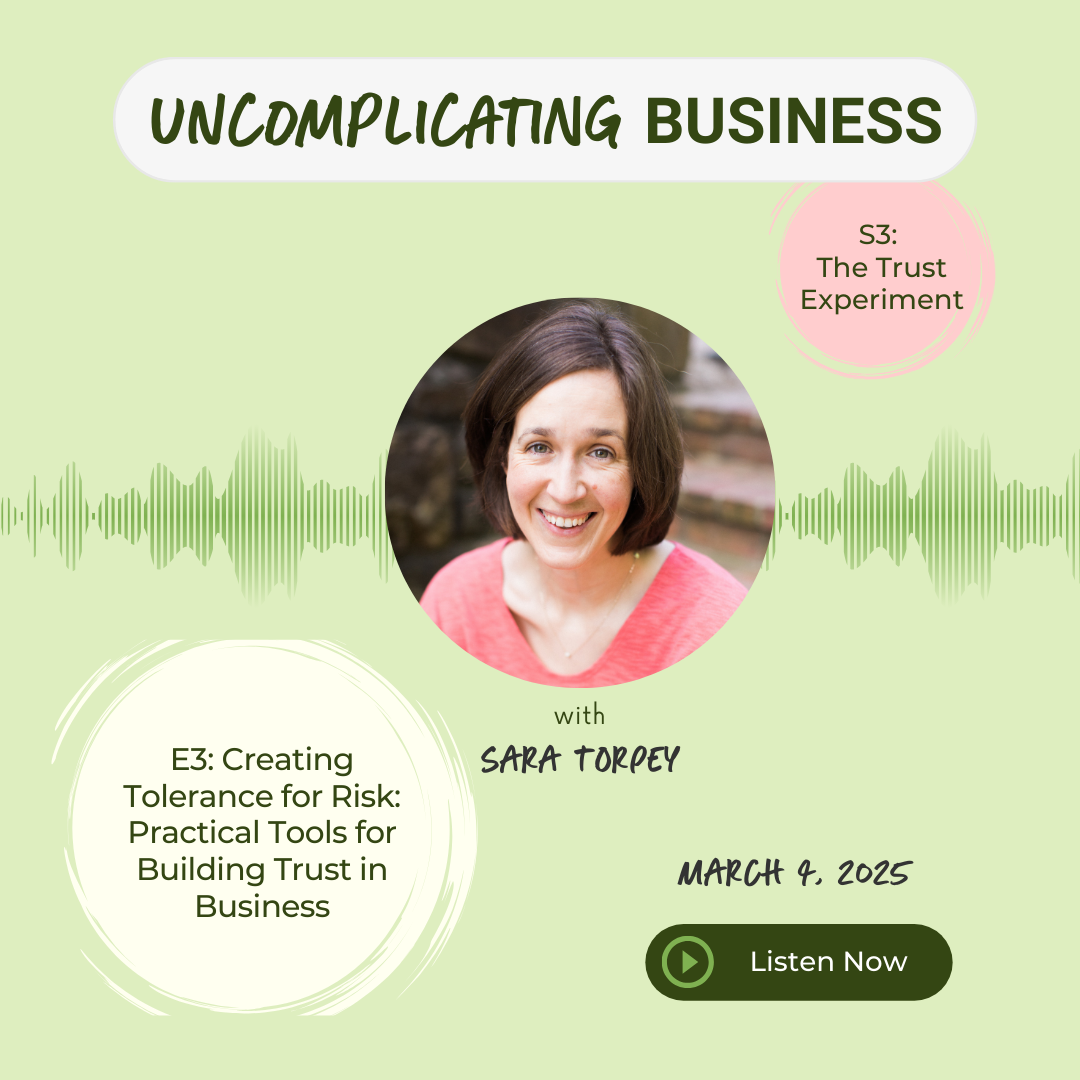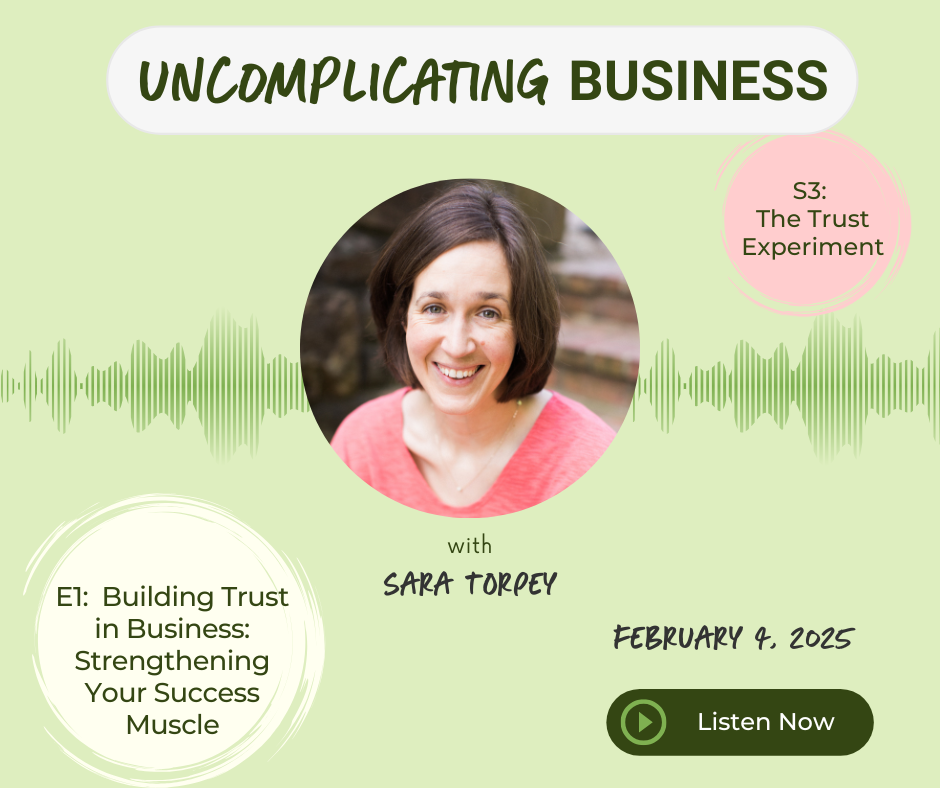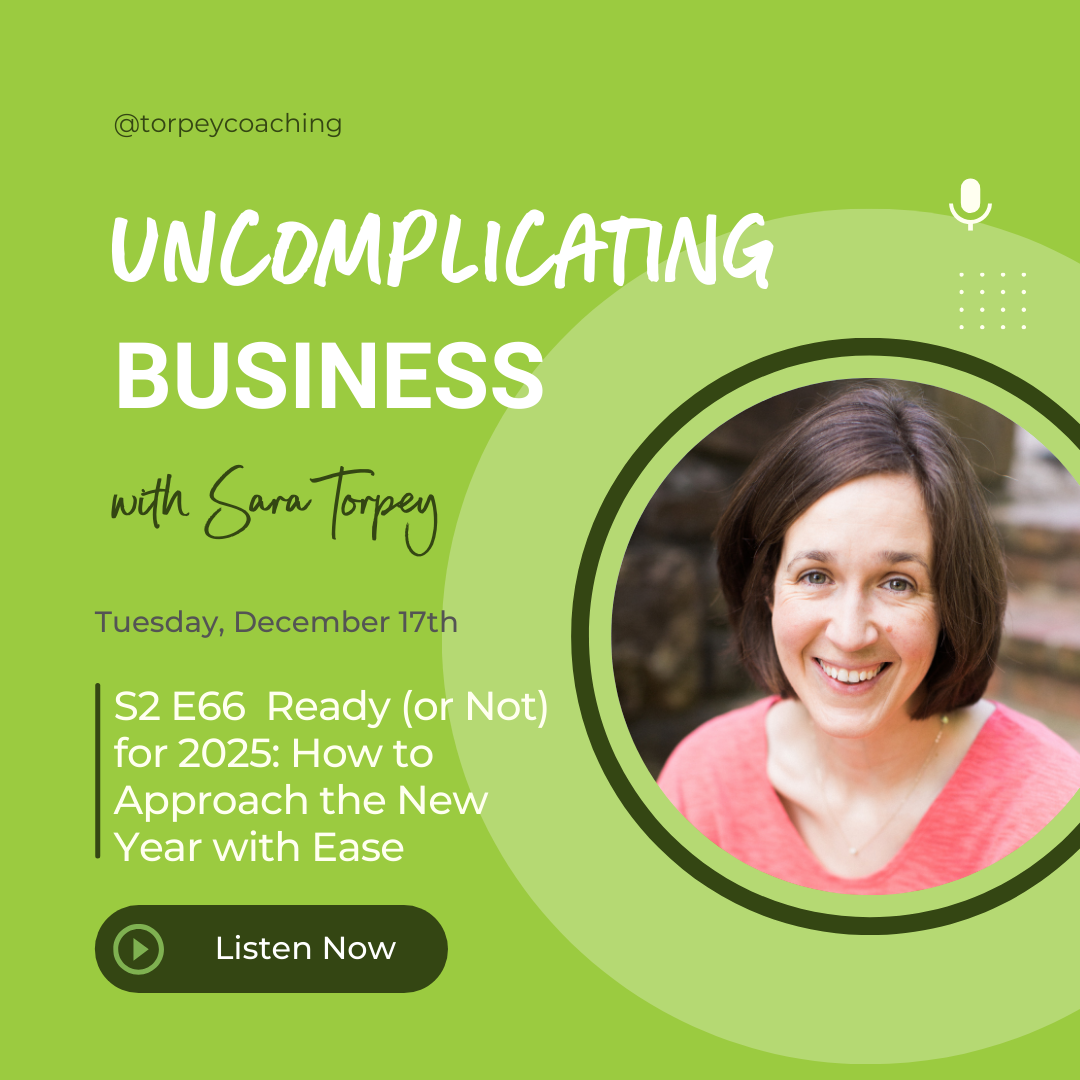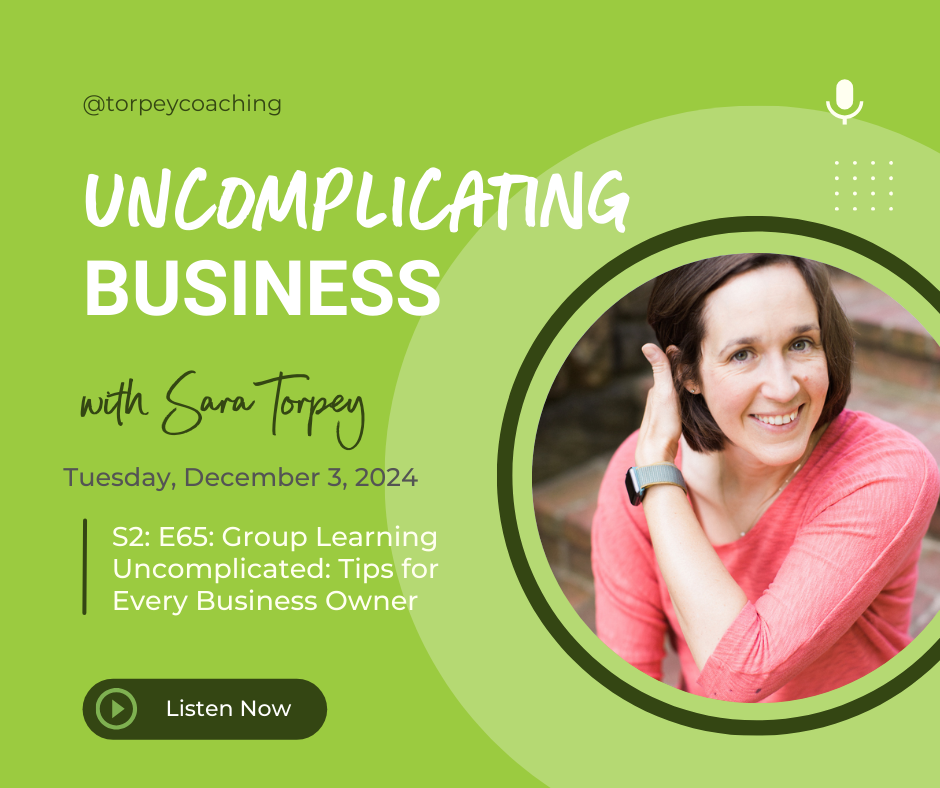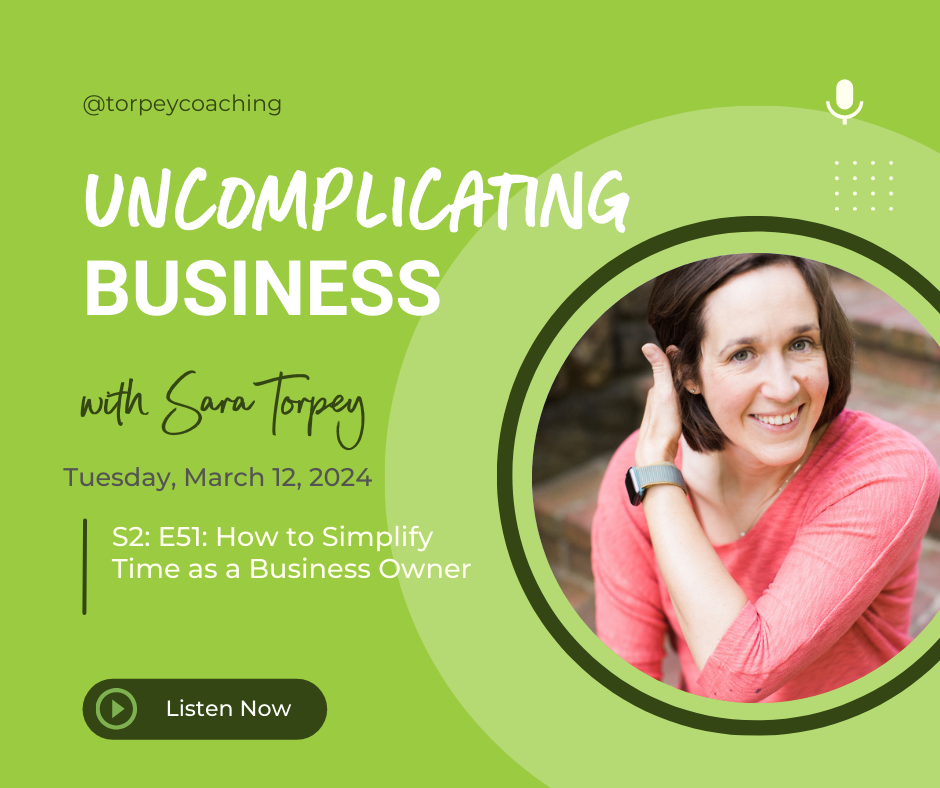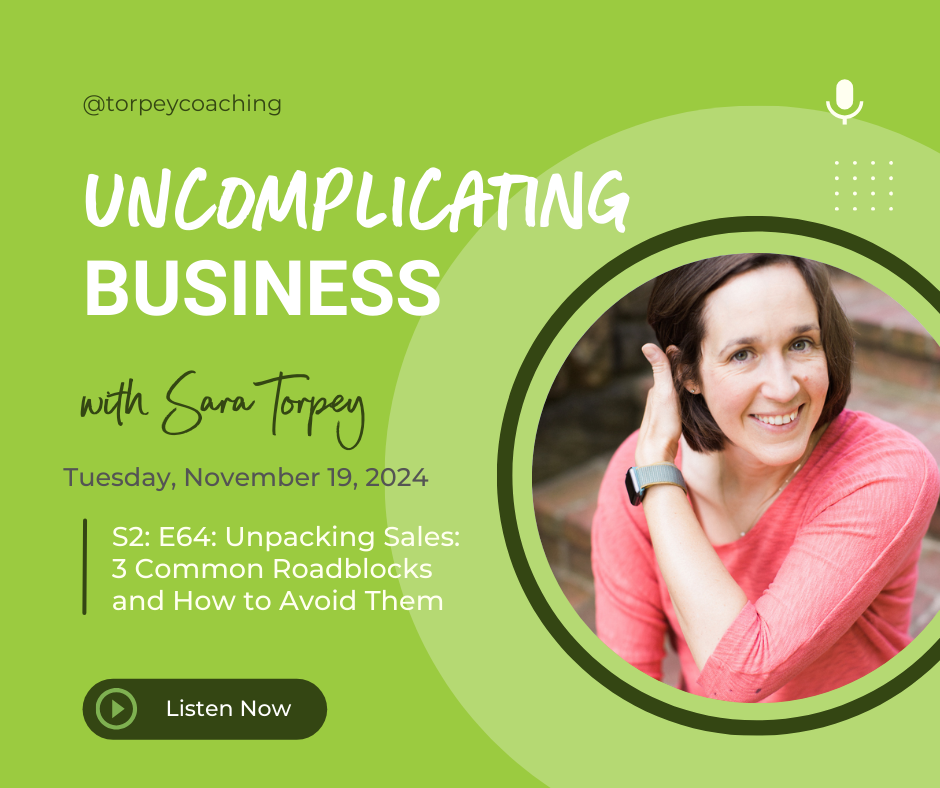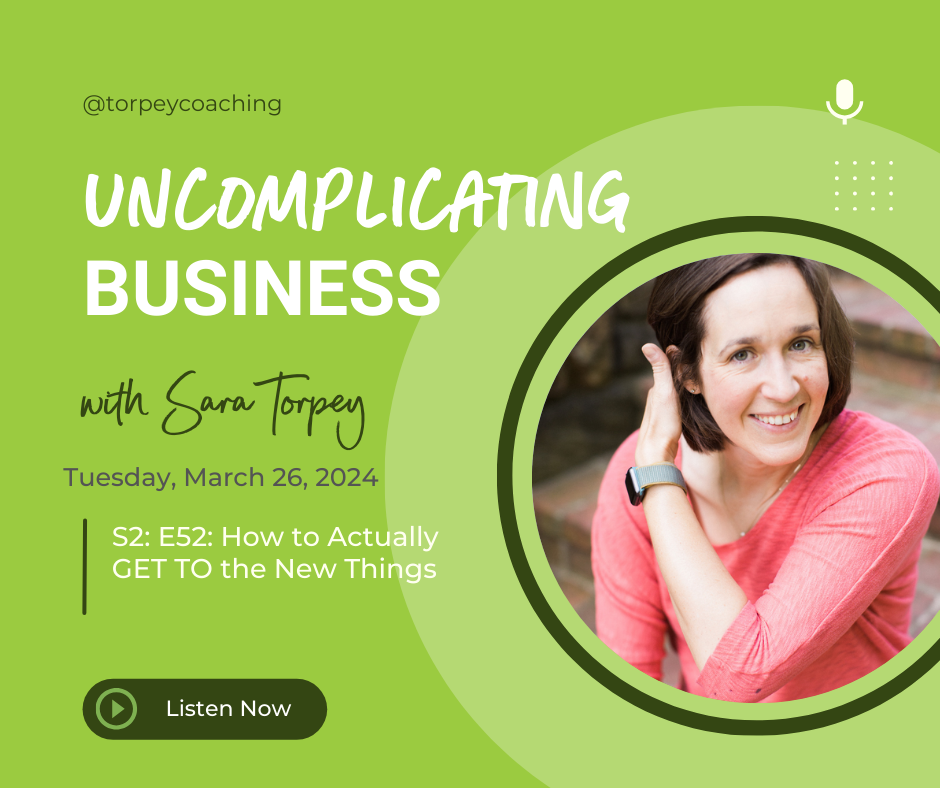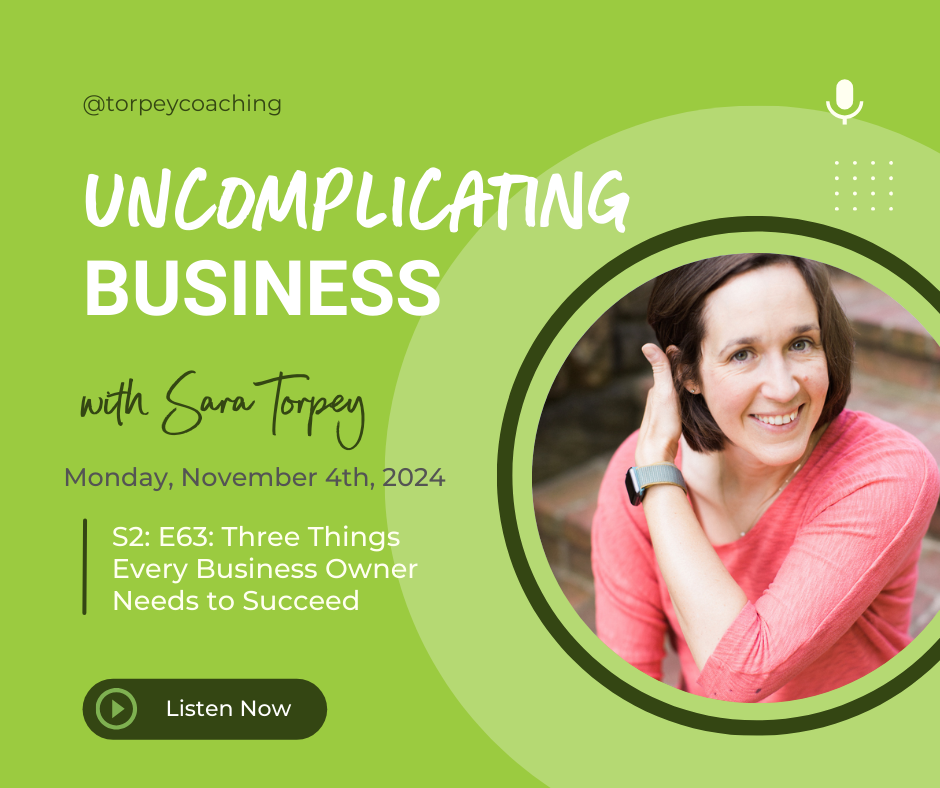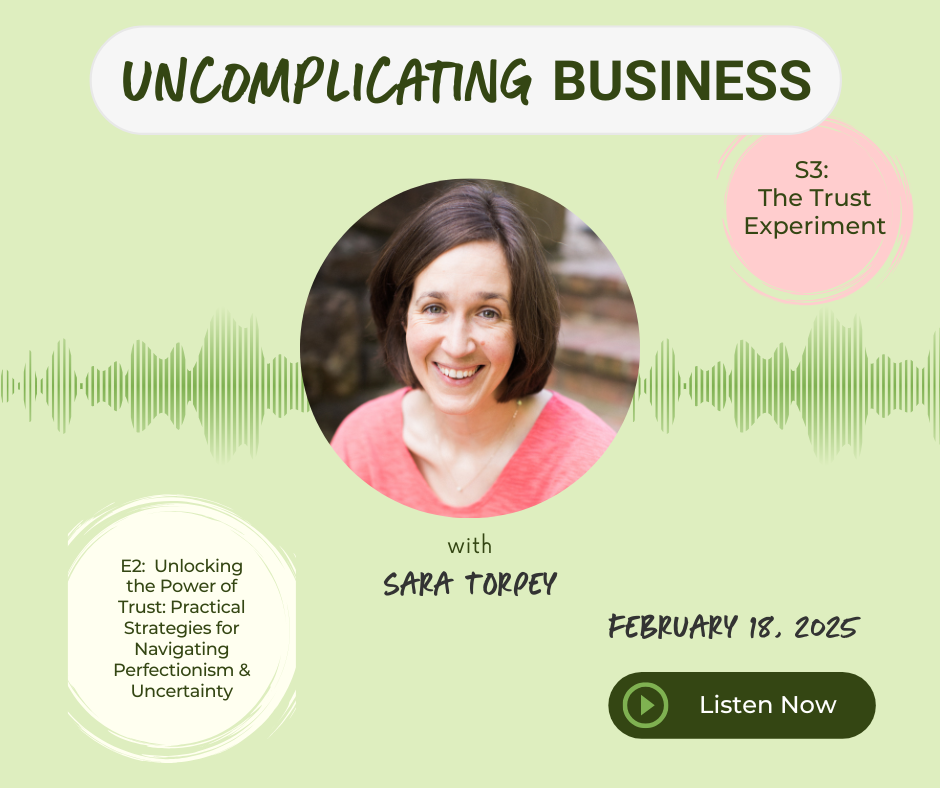Beyond Spreadsheets: How to Evaluate Your Business with 4 Key Questions
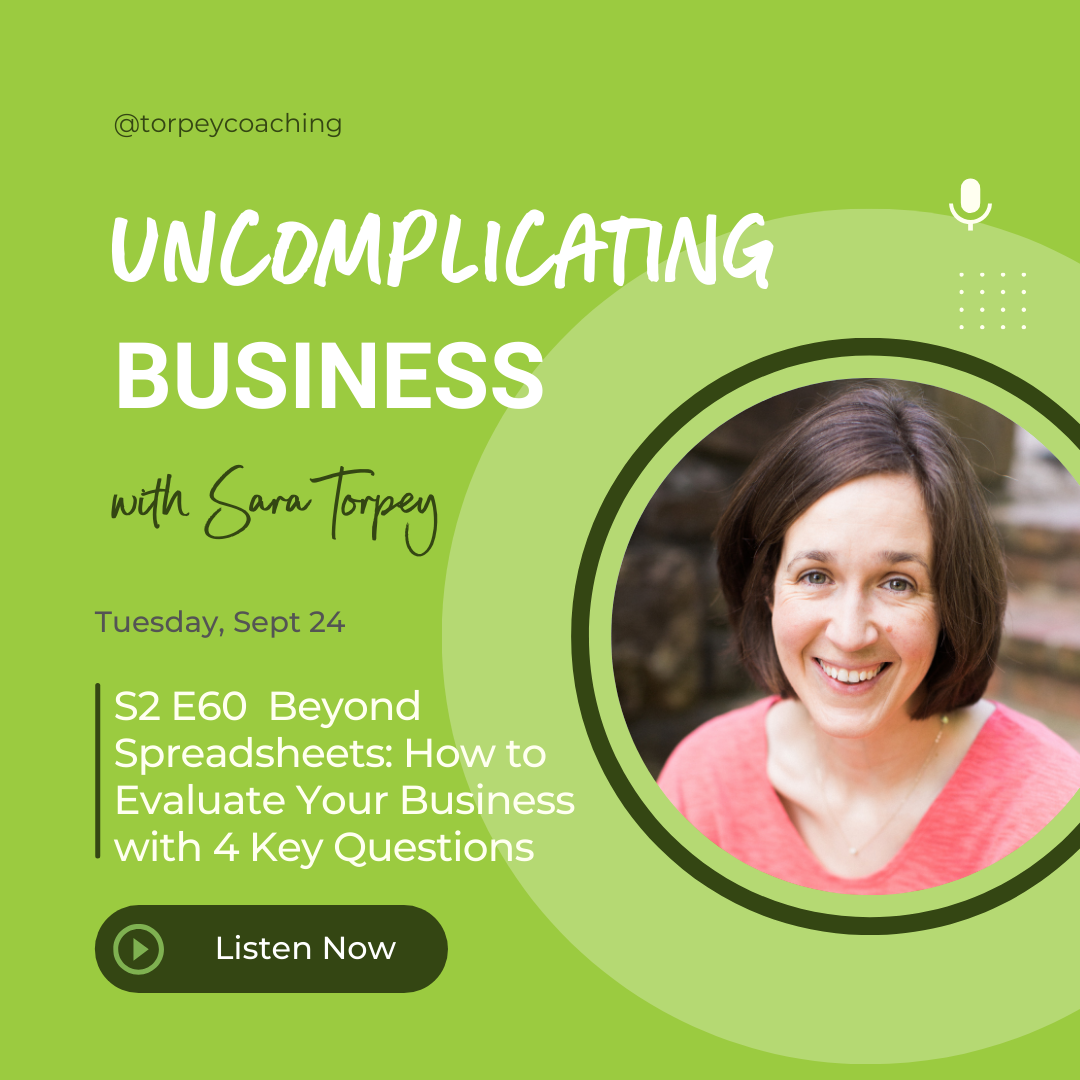
Beyond Spreadsheets: How to Evaluate Your Business with 4 Key Questions
Not every evaluation requires a spreadsheet 😊 In this episode of the UNComplicating Business podcast, we’re going to break down a simple and powerful 4-question evaluation process! You’ll be able to start using these questions today to create actionable insights and plan effectively for tomorrow, next week, next month, AND 2025. 🌟.
To listen to this content rather than read it, you can click play in the player above or listen on Apple Podcasts (or your favorite platform!)
Or watch on YouTube
here.
The Importance of Evaluation
Evaluation isn’t just about numbers and spreadsheets.
Sure, data is important, and also?
Understanding the qualitative (NOT numerical) aspects of your business can provide plenty of important insights. As we approach the end of the year and start planning for 2025, now is the time to begin a practice of regular evaluations.
This practice can help you make to begin to make informed decisions and refine your strategy day by day, week by week, and month by month as we get ready to jump into another new year.
Why Qualitative Evaluation Matters
Sometimes we entrepreneurs think of evaluation as a (painful...) task involving endless data collection, organization, and analysis. And so we avoid it… like the plague.
But the kind of evaluation we’re talking about today, qualitative evaluation, focuses on understanding what feels good in your business, what’s working well, and where improvements can be made.
This approach is not about criticizing yourself or ‘fixing’ you – rather it’s about recognizing successes and areas for growth in a way that creates actual room for growth.
Implementing a Simple Evaluation Framework
To make evaluation manageable and effective, keeping things short and focused with something like this four-question framework can help.
This method allows you to regularly check in on your business’s performance without getting overwhelmed by complex data.
Here’s how you can use these questions to gain valuable insights:
1. What’s Working?
Starting with the positive ALWAYS pays dividends.
Recognizing and acknowledging what’s working well is crucial for building confidence and motivation – when you see that things are working, it’s far easier to keep moving forward.
In addition to helping you stay motivated, this question helps you identify successful strategies and practices that are contributing to your business's growth, so that you can do more of what’s working rather than reinventing the wheel!
For instance, if you’ve been making more offers or connecting effectively with new clients, note these successes. By focusing on the positives, you can leverage these strengths to grow your business operations.
2. What Do I Want to Do Differently?
Once you’ve acknowledged the positives, it’s useful to turn towards what you’d like to adjust.
For example, if you’ve noticed that your outreach efforts aren’t as robust as they could be, this question helps you pinpoint that gap and think about how to address it.
This question it’s where you try to ‘fix’ things – nothing is broken – but it’s where you can bring a mindset of constructive change and find the gaps or places in your business that don’t feel like they’re doing exactly what you want yet.
3. What Are My Next Steps?
With a clear understanding of what’s working and what needs adjustment, it becomes much simpler to outline actionable next steps. This question helps you translate your reflections into concrete actions.
For instance, if you determined that you need to increase outreach efforts, you can decide how many new connections you want to make and where you’ll focus your efforts.
By creating a clear, actionable plan, you ensure that your evaluation leads to tangible improvements.
4. What Do I Want to Let Go Of?
The final question in this evaluation process is about identifying and releasing thoughts, ideas or habits that might be holding you back.
This could include worries about how others perceive you or feelings of doubt, among many other things.
For example, if you’ve been hesitating to make more offers because of fear of rejection, this is the place where you get to recognize this fear and create plans for moving forward, without holding onto it so tightly.
The Benefits of Regular, Brief Evaluations
Regular evaluations, even if brief (15 minutes a week), offer numerous benefits.
These small evaluations can help you to stay on track, make informed decisions, and prevent you from veering off course. Think of it like checking your map while driving—regular check-ins ensure you’re heading in the right direction and make adjustments as needed.
By integrating this practice into your routine, you build a consistent habit of reflection and improvement.
Bonus Question: What Thought Has Been Most Helpful?
There is one additional bonus question that can add depth to your evaluation process: “What thought has been most helpful to me lately?”
This question can help you identify and reinforce thought patterns that support your success.
Reflecting on helpful thoughts can provide inspiration and motivation, especially on days when you might feel less confident.
Getting Started with Your Evaluation Process
To start implementing these evaluation questions, consider the following steps:
- Schedule Regular Check-ins: Set aside time each week to go through these questions and reflect on your business performance. Find a place to check-in that feels simple (for example, it’s way easier for me to do this on a Monday than a Friday!)
- Write it down: Keep a journal or digital record of your responses to track progress and trends over time. Looking back at your responses helps you to see your growth, and helps you make decisions.
- Act on Insights: Use the information from your evaluations to make strategic adjustments and plan next steps.
By integrating these evaluation questions into your routine, you create a powerful tool for business growth and success. Regular, qualitative evaluations offer valuable insights that help you make informed decisions and prepare effectively for the future.
Opportunities
Here are two upcoming opportunities for further growth:
- Small Group Coaching: Join the Uncomplicating Success small group coaching program to simplify and clarify your business strategies. With a maximum of four participants, this coaching provides personalized support and fosters a strong sense of community. Learn more here.
- Offer Hours: On September 30th, 2024, join us for Offer Hours. This 90-minute Zoom session will guide you through making and presenting offers, with a focus on accountability and actionable results. Join here!
For more information on these opportunities, click the links, join us in
UNComplicating Business for Teachers, Helpers and Givers on FB, or email me at
sara@torpeycoaching.com with questions!
